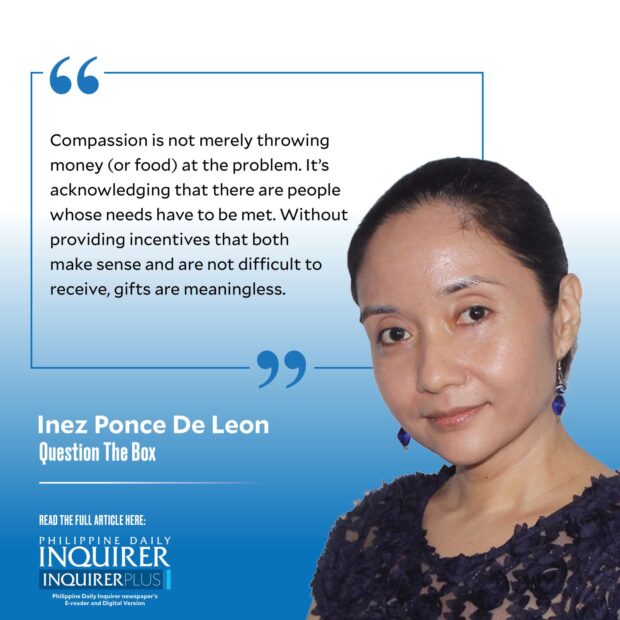Uneven

Years ago, I went on fieldwork to San Francisco, Camotes Islands, which had survived Supertyphoon “Yolanda” (international name: Haiyan). Their work to get to the point of self-governed disaster management took over a decade, but the effort paid off.
There were, however, still some sore spots, and these were borne out by research, including mine. I found that an overreliance on science as the only source of information for disaster-related decision-making also kept locals from using their indigenous knowledge, to the point that people simply obeyed whatever it was their barangay told them to do, and penalized those who did not follow.Previous research called this a “reinforcement of existing power structures,” where families who bought into the orders from above were shown favor, while those who did not were shut out. It was as though a system once designed to meet the contexts of a community became exclusive only to those who observed rules that were not completely based on the community’s indigenous knowledge (i.e., context) to begin with.
It was this balance of community context and oversight that I remembered as I attended a family reunion last weekend. Given the average age of the people in the room, conversations turned to senior citizens and persons-with-disabilities (PWD) benefits packages.
We all had varying experiences with having to apply for benefits and what the benefits were, depending on where we lived in the country.
In one city, for instance, senior citizens got fresh vegetables and chicken during COVID-19; in another city, relief came in the form of instant noodles and cheap canned goods.
“Thanks for the sodium overload! Can’t wait to blow my pension on maintenance meds!” people (implicitly) chorused.
In one city, seniors get cash and groceries for special occasions like Christmas or birthdays. In another, senior citizens get a Christmas emergency go-bag and money. Just across the metro in another city, senior citizens are told to go all the way to city hall twice a month to claim a P600 cash incentive—an amount that is depleted rather quickly by one’s transportation costs to just get there.
“What happens to the unclaimed benefits?” one of our relatives asked.
Another relative shrugged, “Looks like City Hall gets to keep them.”
In some restaurants, benefits are extended only for a meal and a drink; in others, benefits apply to whatever the senior eats. In some places, barangays really help out their citizens with applying for benefits, so that these citizens don’t have to step too far to get their cards and enjoy what the law allows them to do. In other barangays, however, senior citizens and PWDs are told to go to a centralized office and carry out the application process on their own, even if those citizens are in pain, are too old or sick to walk, or have neither the time nor the means to make the trip.
Even as the law stipulates that senior citizens and PWDs should receive benefits and have proper identification to allow them to receive these benefits, the implementation of the law is uneven. There is no standard protocol for barangays to efficiently get people their IDs with minimal inconvenience. A single office is not the solution to this problem. Strategic planning at different levels of government is.
Can’t all barangays provide the service that would allow seniors and PWDs to simply go to their barangay and get what they need? Can’t all local government units have the same benefits for seniors, not just because seniors compare notes, but because all seniors should be entitled to nutritious food, Christmas gifts that won’t kill them by New Year, and birthday gifts that would make them happy to have lived another year rather than regretful of having taken another breath in the same country that treats them like wards of the state who should be thankful for receiving trash?
There is merit, true, in allowing barangays to be self-governing, and for smaller units of government to exercise their freedoms in fitting actions and policies to context. However, some needs are universal and that should require oversight and orders.
(Uneven governance has been our scourge for decades, after all. In some places, criminals are brought to justice because principles come before personal interests. In others, a pedophile is allowed to go free by people at multiple levels of power, all because he gave them money during the elections—even as he already has cases against him in courts of law around the world.)
Compassion is needed here. It is not some abstract emotion. It is cooperation and strategizing so that offices are given rules that are both evenly implemented, while still cognizant of their context. With uneven governance, we have multiple federal states that don’t talk to each other and therefore waste their funds.
Compassion is not merely throwing money (or food) at the problem. It’s acknowledging that there are people whose needs have to be met. Without providing incentives that both make sense and are not difficult to receive, gifts are meaningless.
iponcedeleon@ateneo.edu




















